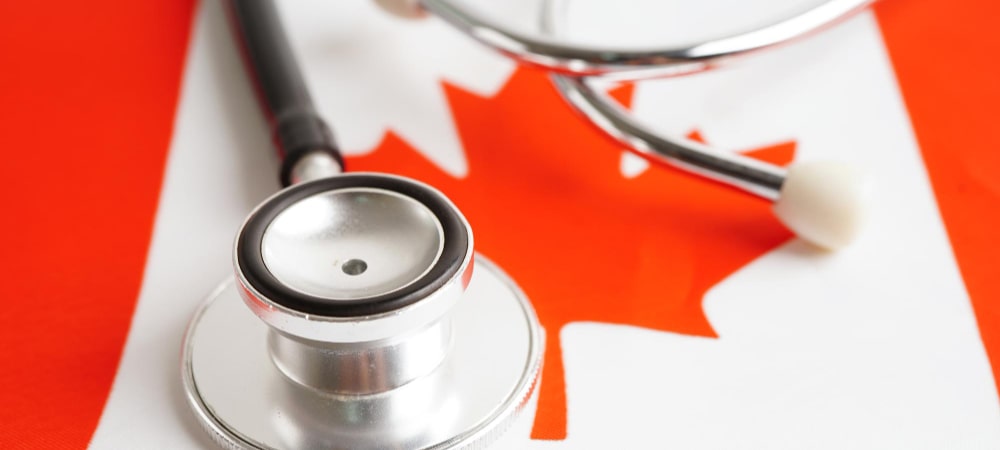Studying medicine in Canada is a dream for many aspiring doctors. With its world-renowned medical schools, rigorous training, and diverse opportunities, Canada is one of the top destinations for medical education. However, the process of becoming a doctor in Canada is competitive and requires careful planning. This comprehensive guide will walk you through everything you need to know about studying medicine in Canada, from admission requirements to career opportunities.
1. Introduction
Medicine is one of the most respected and rewarding professions, and Canada offers an excellent environment for medical education. This guide will provide an in-depth look at what it takes to study medicine in Canada, from getting accepted into a medical school to the steps you need to take after graduation. Whether you are a Canadian student or an international applicant, this guide will help you navigate the path to becoming a doctor in Canada.
2. Why Study Medicine in Canada?
World-Class Education
Canada is home to some of the best medical schools in the world, known for their rigorous academic standards and cutting-edge research. Canadian medical schools emphasize a holistic approach to patient care, combining theoretical knowledge with practical experience.
Global Recognition
A medical degree from Canada is recognized worldwide, providing graduates with the flexibility to practice medicine in various countries. The training and experience gained in Canada are highly valued, making Canadian-trained doctors competitive in the global healthcare market.
Diverse Clinical Experience
Canada’s multicultural population and well-developed healthcare system offer medical students diverse clinical experiences. From urban hospitals to rural clinics, students gain exposure to a wide range of medical conditions and patient demographics, preparing them for various challenges in their medical careers.
Opportunities for Research
Canadian medical schools are at the forefront of medical research, offering students opportunities to engage in groundbreaking research projects. Whether it’s clinical trials, public health studies, or laboratory research, students can contribute to advancements in medicine while pursuing their degrees.
3. Overview of the Canadian Medical Education System
Structure of Medical Education in Canada
The medical education system in Canada is divided into several stages:
- Undergraduate Medical Education: Typically a 4-year program leading to an MD (Doctor of Medicine) degree. Some schools offer a 3-year program.
- Postgraduate Medical Education: Also known as residency, this stage involves specialized training in a particular field of medicine, usually lasting 2-7 years depending on the specialty.
- Continuing Medical Education: Lifelong learning through workshops, courses, and conferences to keep skills and knowledge up-to-date.
Key Differences Between Canadian and Other Medical Systems
One key difference in the Canadian system is that most medical schools require applicants to have completed a bachelor’s degree before applying, unlike some countries where students can enter medical school directly from high school. Additionally, Canada places a strong emphasis on clinical experience throughout medical training.
The Role of the Medical Council of Canada (MCC)
The MCC is responsible for overseeing the assessment and certification of medical graduates in Canada. All medical students must pass the Medical Council of Canada Qualifying Examination (MCCQE) Part I and Part II to obtain licensure to practice medicine in Canada.
4. Admission Requirements for Medical Schools in Canada
Academic Prerequisites
Most Canadian medical schools require applicants to have completed a bachelor’s degree with a strong academic record in prerequisite subjects such as biology, chemistry, physics, and mathematics. A competitive GPA is essential, with most schools expecting a minimum of 3.5 on a 4.0 scale.
MCAT (Medical College Admission Test)
The MCAT is a standardized exam that assesses problem-solving, critical thinking, and knowledge of natural, behavioral, and social sciences. It is a critical component of the medical school application process in Canada, and a high score can significantly enhance your chances of admission.
Letters of Recommendation
Applicants typically need to submit letters of recommendation from professors, employers, or healthcare professionals who can attest to their academic abilities, work ethic, and suitability for a career in medicine.
Personal Statement and Essays
A personal statement or application essay is an opportunity for applicants to highlight their motivations for studying medicine, relevant experiences, and personal qualities that make them suitable candidates. This is a critical part of the application that allows schools to assess the applicant’s character and commitment to medicine.
Interviews
Most Canadian medical schools conduct interviews as part of the selection process. These interviews may take the form of Multiple Mini Interviews (MMIs), traditional one-on-one interviews, or panel interviews. They are designed to assess communication skills, ethical reasoning, and suitability for the medical profession.
Additional Requirements for International Students
International students must meet the same academic and testing requirements as Canadian applicants. However, they may also need to demonstrate English or French language proficiency (depending on the language of instruction) and provide proof of financial stability to cover tuition and living expenses.
5. List of Top Medical Schools in Canada
University of Toronto Faculty of Medicine
The University of Toronto is consistently ranked as one of the top medical schools in Canada and the world. It offers a comprehensive MD program with opportunities for research, clinical experience, and global health initiatives.
McGill University Faculty of Medicine
McGill University, located in Montreal, is known for its strong emphasis on research and its bilingual medical program, offering instruction in both English and French.
University of British Columbia Faculty of Medicine
UBC’s Faculty of Medicine is one of the largest in Canada, with a strong focus on rural and community-based health care. The program offers extensive clinical training across British Columbia.
University of Alberta Faculty of Medicine and Dentistry
The University of Alberta offers a highly regarded MD program with a focus on interdisciplinary learning and research. The school is known for its innovative approaches to medical education.
McMaster University Michael G. DeGroote School of Medicine
McMaster University is renowned for its problem-based learning (PBL) curriculum, which emphasizes small group learning and self-directed study. The program is shorter, at three years, but highly intensive.
Queen’s University School of Medicine
Queen’s University offers a supportive learning environment with a strong focus on patient-centered care. The program integrates clinical experience from the early stages of the curriculum.
6. Application Process for Canadian Medical Schools
Centralized Application Services (OMSAS and Others)
Most medical schools in Canada use centralized application services to streamline the application process. The Ontario Medical School Application Service (OMSAS) is used by medical schools in Ontario. Other provinces have their own systems or direct applications.
Timeline for Applications
The application process for medical schools in Canada typically begins a year before the intended start date. Deadlines vary by school but generally fall between September and October. It’s important to start preparing your application well in advance.
Tips for a Successful Application
- Start Early: Begin preparing your application materials, such as letters of recommendation and personal statements, well in advance.
- Research Schools: Understand the unique offerings and requirements of each school to tailor your application accordingly.
- Practice for Interviews: If invited for an interview, practice common interview questions and familiarize yourself with the MMI format.
7. Cost of Studying Medicine in Canada
Tuition Fees
Tuition fees for medical schools in Canada vary widely depending on the institution and whether the student is a domestic or international applicant. On average, tuition can range from CAD $16,000 to CAD $60,000 per year for international students.
Cost of Living
The cost of living in Canada depends on the city you choose to study in. Major cities like Toronto and Vancouver have higher living costs, while smaller cities may be more affordable. On average, students should budget CAD $15,000 to CAD $30,000 per year for living expenses.
Scholarships and Financial Aid
Many medical schools in Canada offer scholarships, bursaries, and financial aid to help offset the cost of education. These are often based on academic merit, financial need, or specific criteria such as community involvement.
Working While Studying
International students with a valid study permit are allowed to work part-time (up to 20 hours per week) during the academic year and full-time during scheduled breaks. This can help cover living expenses, but students should be mindful of balancing work with the demands of medical school.
8. Life as a Medical Student in Canada
Academic Expectations
Medical school in Canada is demanding, with a heavy workload that includes lectures, labs, clinical rotations, and independent study. Students are expected to maintain high academic standards and continuously develop their clinical skills.
Clinical Rotations
Clinical rotations are a core part of the medical curriculum, providing hands-on experience in various medical specialties. These rotations typically begin in the third year and allow students to apply their knowledge in real-world settings under the supervision of experienced physicians.
Extracurricular Activities
In addition to academics, medical students in Canada are encouraged to engage in extracurricular activities such as research, volunteer work, and participation in student organizations. These activities can enhance your medical education and build a well-rounded application for residency programs.
Mental Health and Wellness
The demands of medical school can take a toll on students’ mental health. Canadian medical schools offer various resources to support student wellness, including counseling services, peer support groups, and wellness programs. It’s important for students to prioritize their mental and physical health throughout their studies.
9. Post-Graduation Pathways
Residency Programs
After completing medical school, graduates must enter a residency program, which provides specialized training in a particular field of medicine. Residency programs in Canada are competitive and typically last 2-7 years, depending on the specialty.
Licensing and Certification
To practice medicine in Canada, graduates must obtain a license from the medical regulatory authority in the province or territory where they wish to work. This involves passing the MCCQE Part I and II exams, completing a residency program, and meeting any additional provincial requirements.
Career Opportunities in Canada
Canada offers a wide range of career opportunities for medical graduates, from family medicine and general practice to highly specialized fields. The demand for doctors in Canada is strong, particularly in rural and underserved areas.
International Opportunities
A Canadian medical degree is recognized internationally, allowing graduates to pursue careers abroad. However, additional licensing exams may be required depending on the country.
10. Challenges and Considerations for International Students
Visa Requirements
International students must obtain a study permit to study in Canada. The application process requires proof of acceptance from a medical school, financial stability, and a clean criminal record. Some students may also need a Temporary Resident Visa (TRV) or an Electronic Travel Authorization (eTA).
Adapting to Canadian Culture
Adapting to a new culture can be challenging, especially in a rigorous academic environment like medical school. International students should take advantage of orientation programs, cultural exchange activities, and student support services to ease the transition.
Language Proficiency
Proficiency in English or French is essential for success in Canadian medical schools. International students whose first language is not English or French may need to provide proof of language proficiency through standardized tests such as IELTS or TOEFL.
Support Services for International Students
Canadian universities offer a range of support services for international students, including academic advising, language support, career counseling, and cultural integration programs. These resources are invaluable for helping international students succeed in their studies and adapt to life in Canada.
11. Conclusion
Studying medicine in Canada is a challenging yet rewarding journey that opens doors to numerous career opportunities both within Canada and internationally. By understanding the admission requirements, navigating the application process, and preparing for the academic and personal challenges ahead, you can set yourself up for success in one of the most respected fields. This guide provides a comprehensive overview of what you need to know to pursue a medical degree in Canada and build a fulfilling career in healthcare.






